How Elena Mrozovskaya became the FIRST female Russian photographer
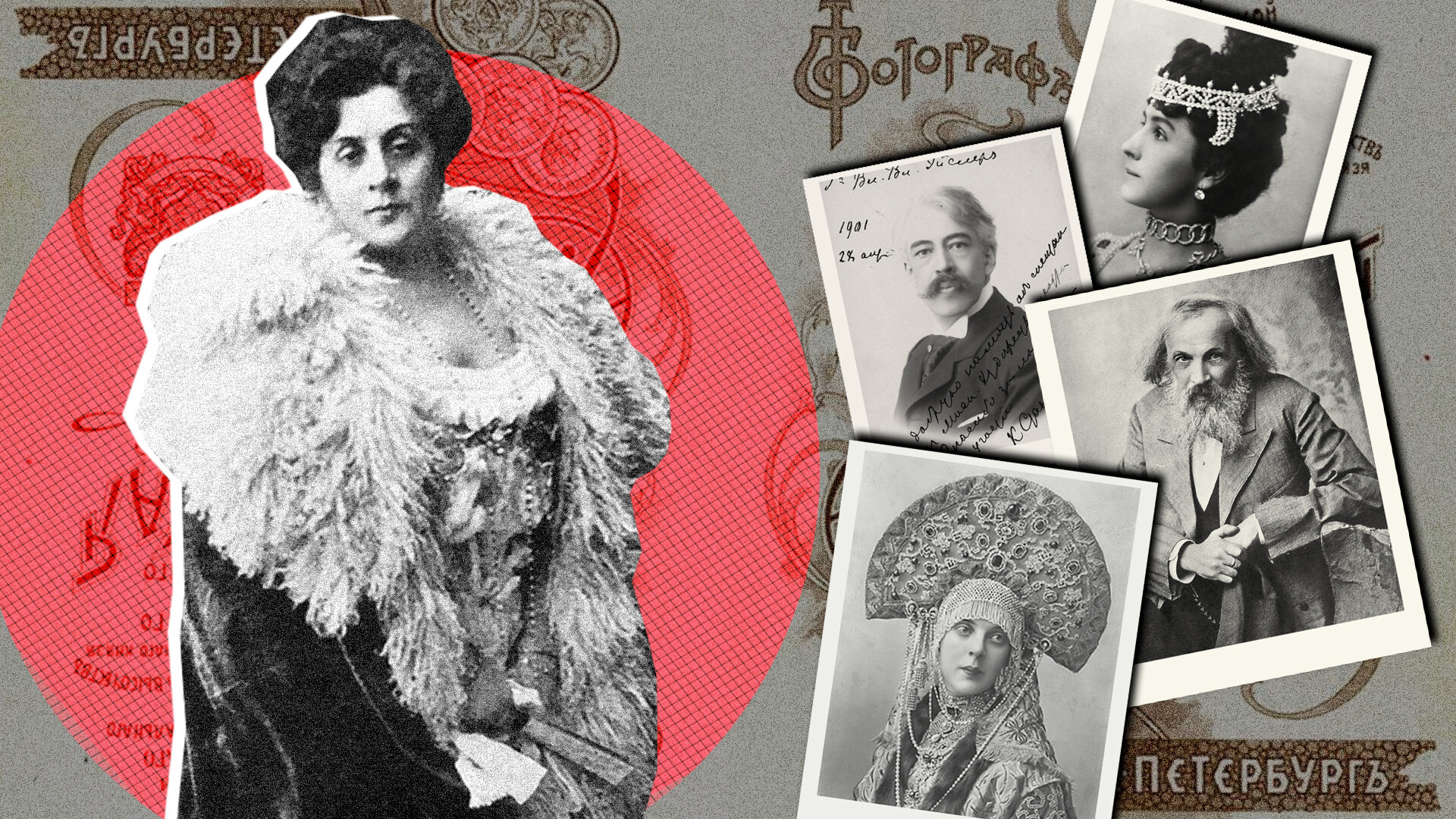
Elena Mrozovskaya started off as an amateur photographer, working at the same time as a teacher and a saleswoman. In 1892, she finished the brand new photography course at the Imperial Russian Technical Society, after which she went straight off to Paris to hone her skills and study further. There, famous photographer Nadar (Gaspard-Félix Tournachon) became her teacher.
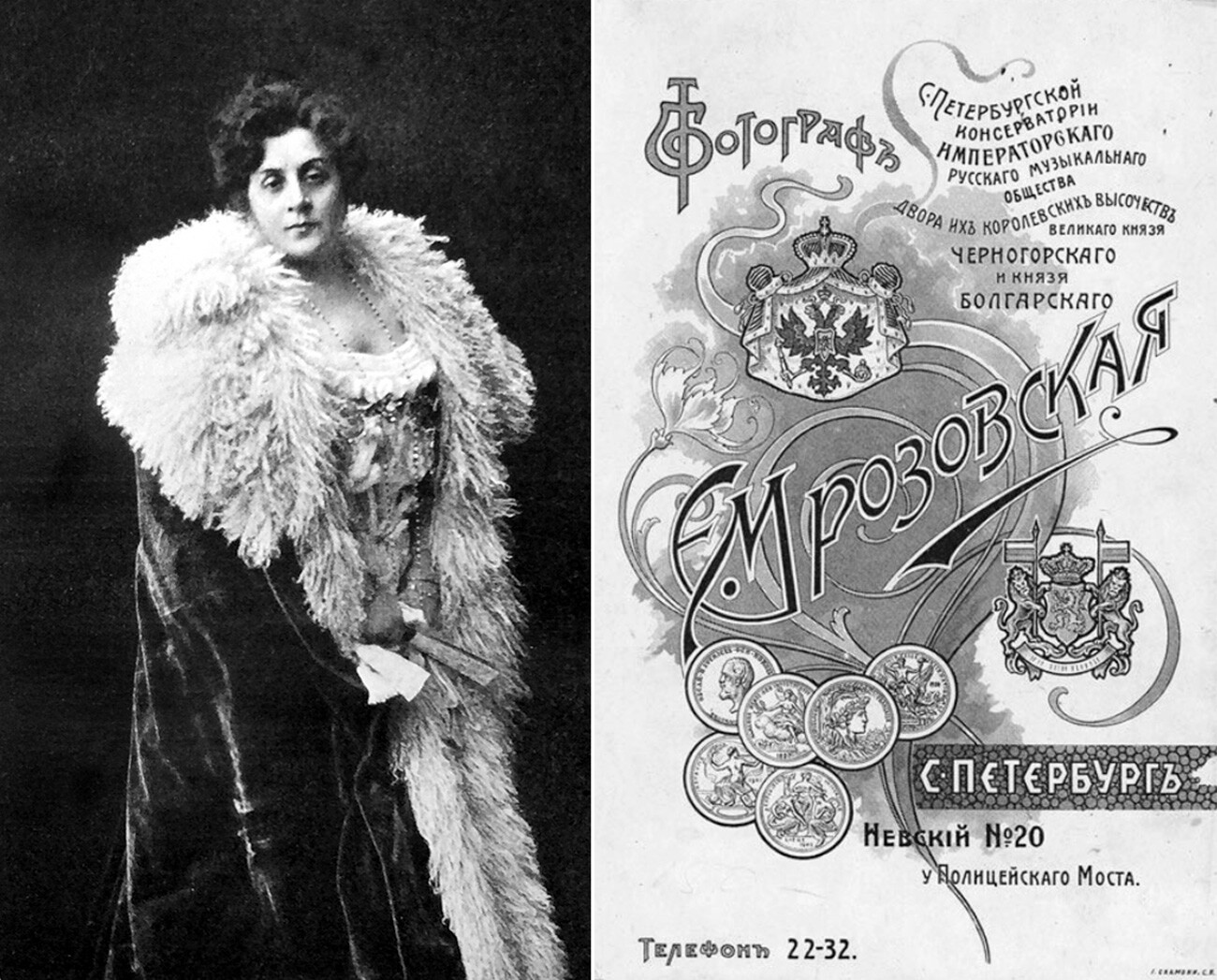 Elena Mrozovskaya
Elena Mrozovskaya
The biography of Mrozovskaya is very poorly studied. Fragmentary data says that her maiden name was Knyazhevich and that she was Montenegrin by origin. Her exact date of birth is also unknown. She was a merchant of the second guild, while her husband was a process control engineer in the timber industry.
In 1894, Mrozovskaya became the first woman to open her own photo studio in St. Petersburg – right on Nevsky Prospekt, 20, just a few minutes walk away from the photo studio of the extremely famous Karl Bulla.
Mrozovskaya’s studio was quite a well-known place in St. Petersburg. Over the long years of work in the studio, Mrozovskaya painted portraits of the members of the imperial family and the representatives of princely families, famous actors and the entire music elite of her time. Below is composer Nikolai Rimsky-Korsakov; the reverse side of his portrait features the trademark of Mrozovskaya’s studio.
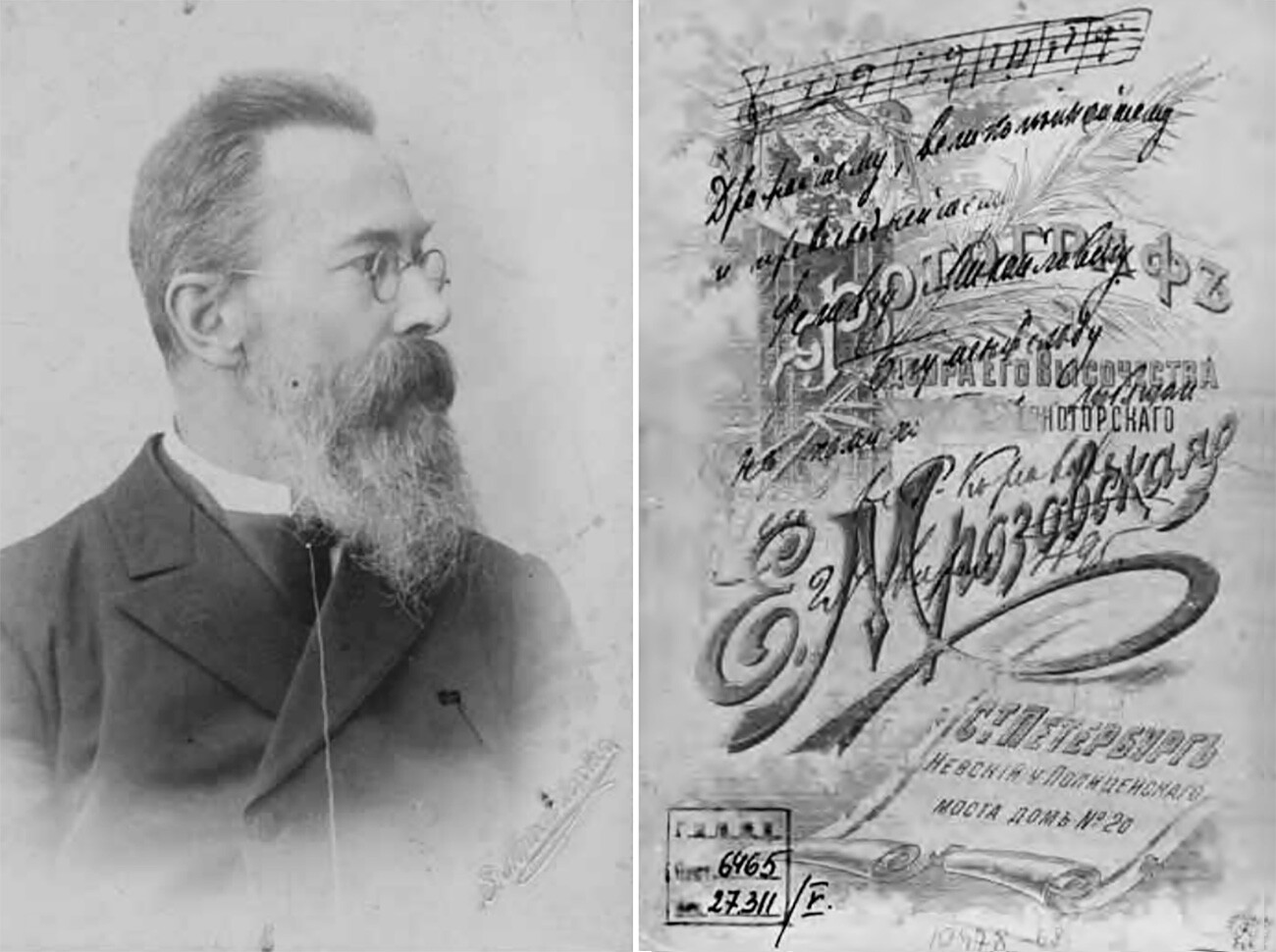 Composer Nikolai Rimsky-Korsakov
Composer Nikolai Rimsky-Korsakov
And below, for example, is famous ballerina Mathilde Kschessinska, whom Nicholas II was passionate about in his youth. In many photos, she poses as characters or in costumes from the performances she danced in.
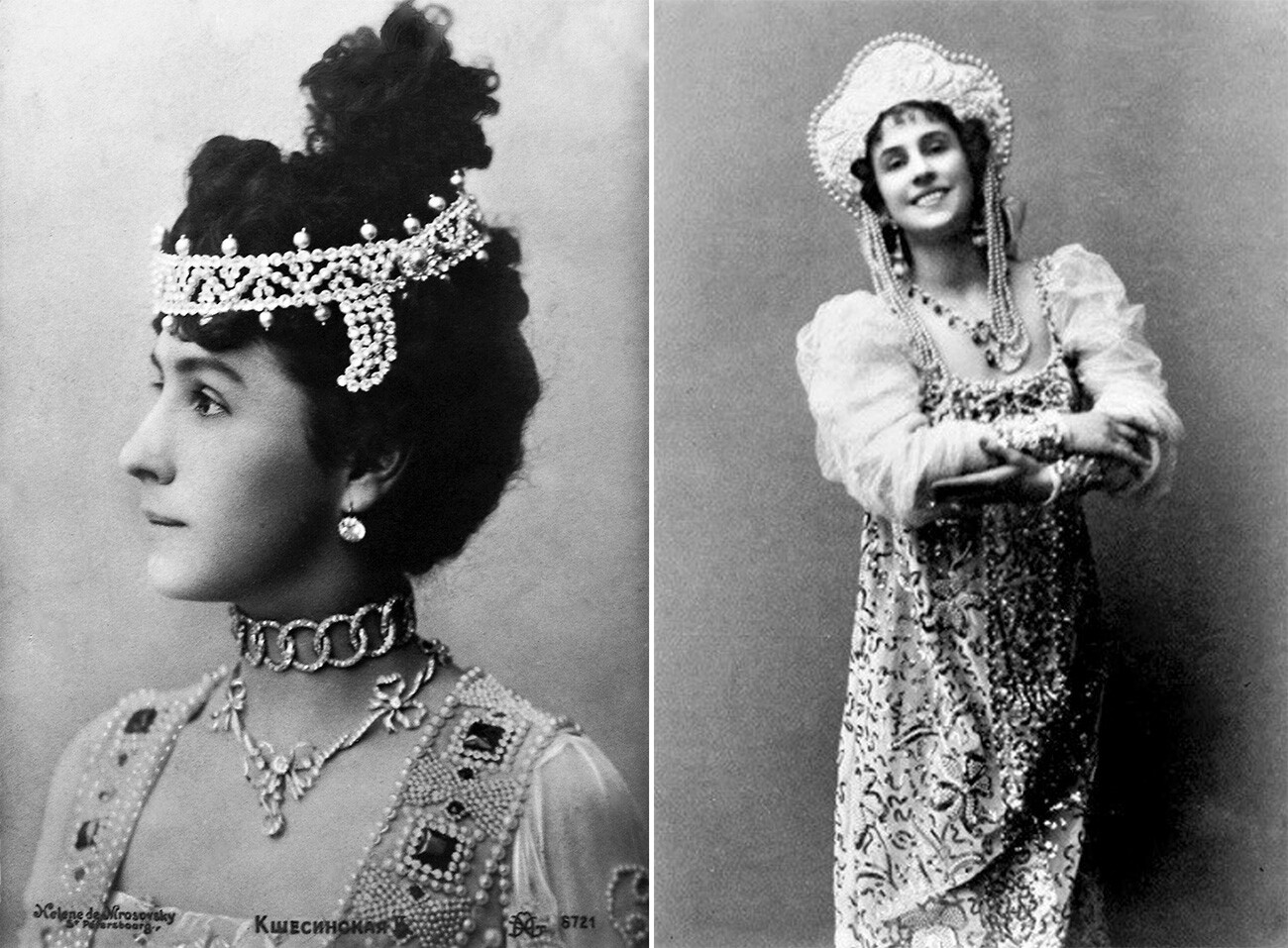 Ballerina Mathilde Kschessinska
Ballerina Mathilde Kschessinska
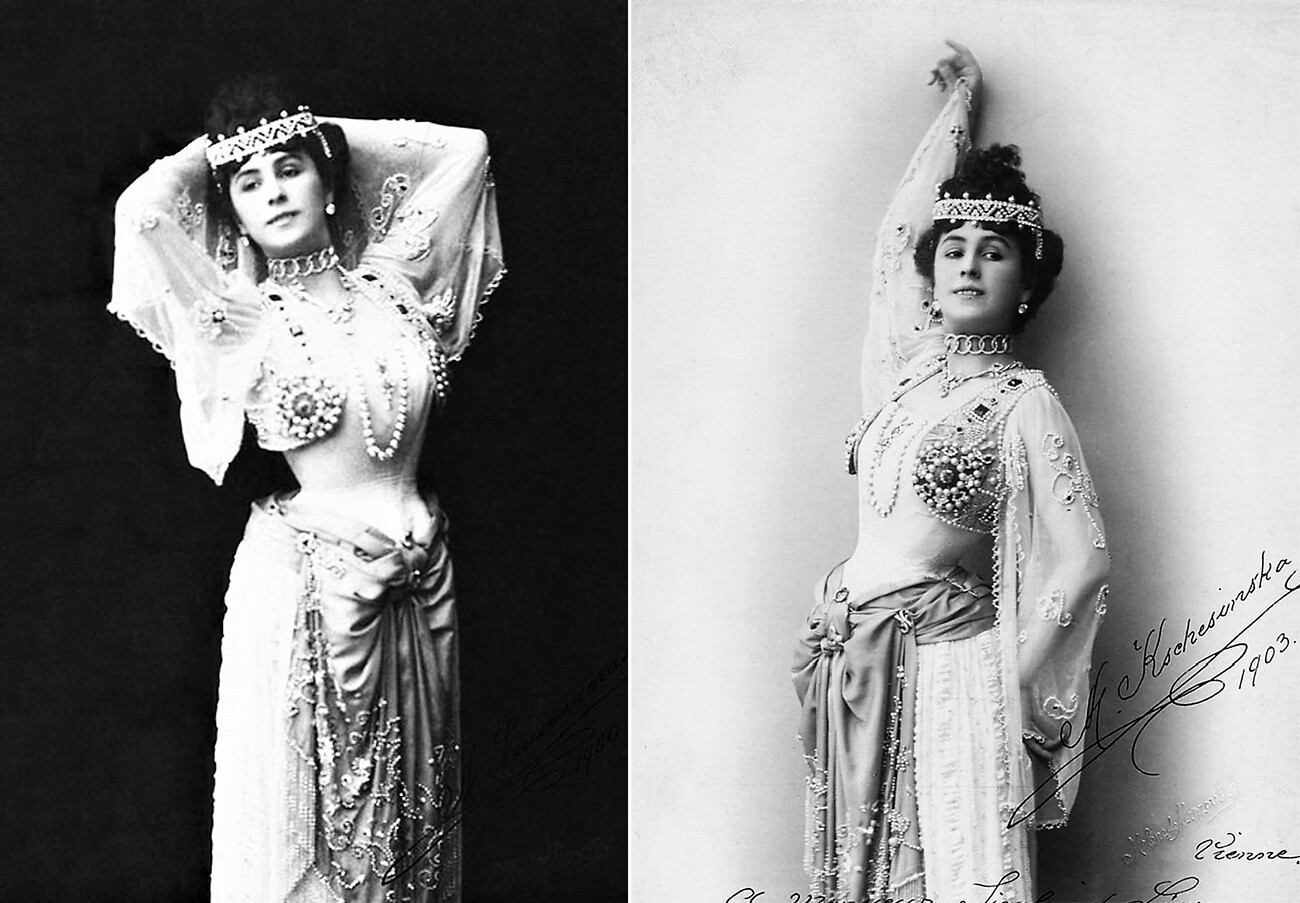 Ballerina Mathilde Kschessinska
Ballerina Mathilde Kschessinska
Mrozovskaya also took dozens of portraits of famous actress Vera Komissarzhevskaya, also in her role costumes.
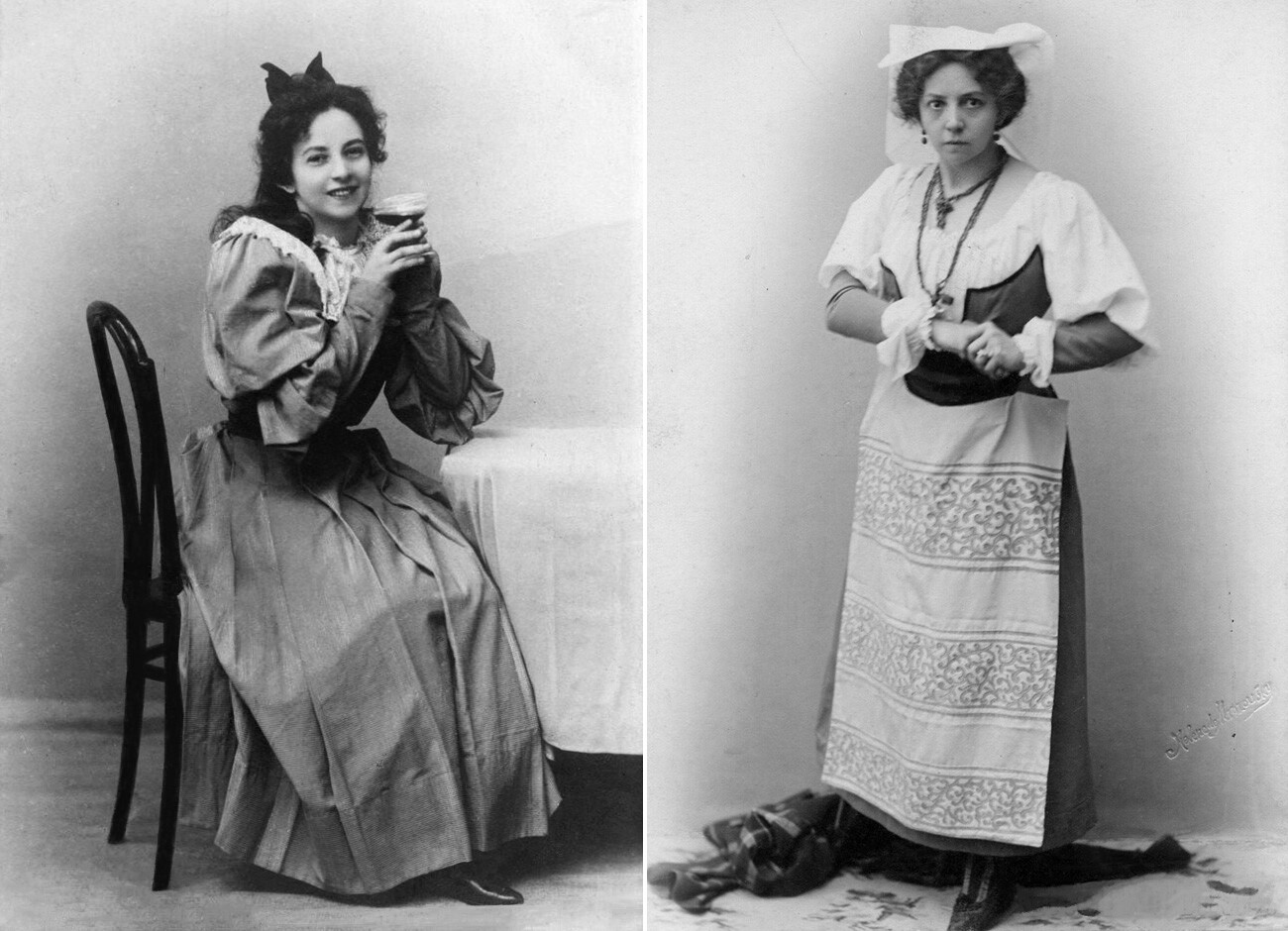 Actress Vera Komissarzhevskaya
Actress Vera Komissarzhevskaya
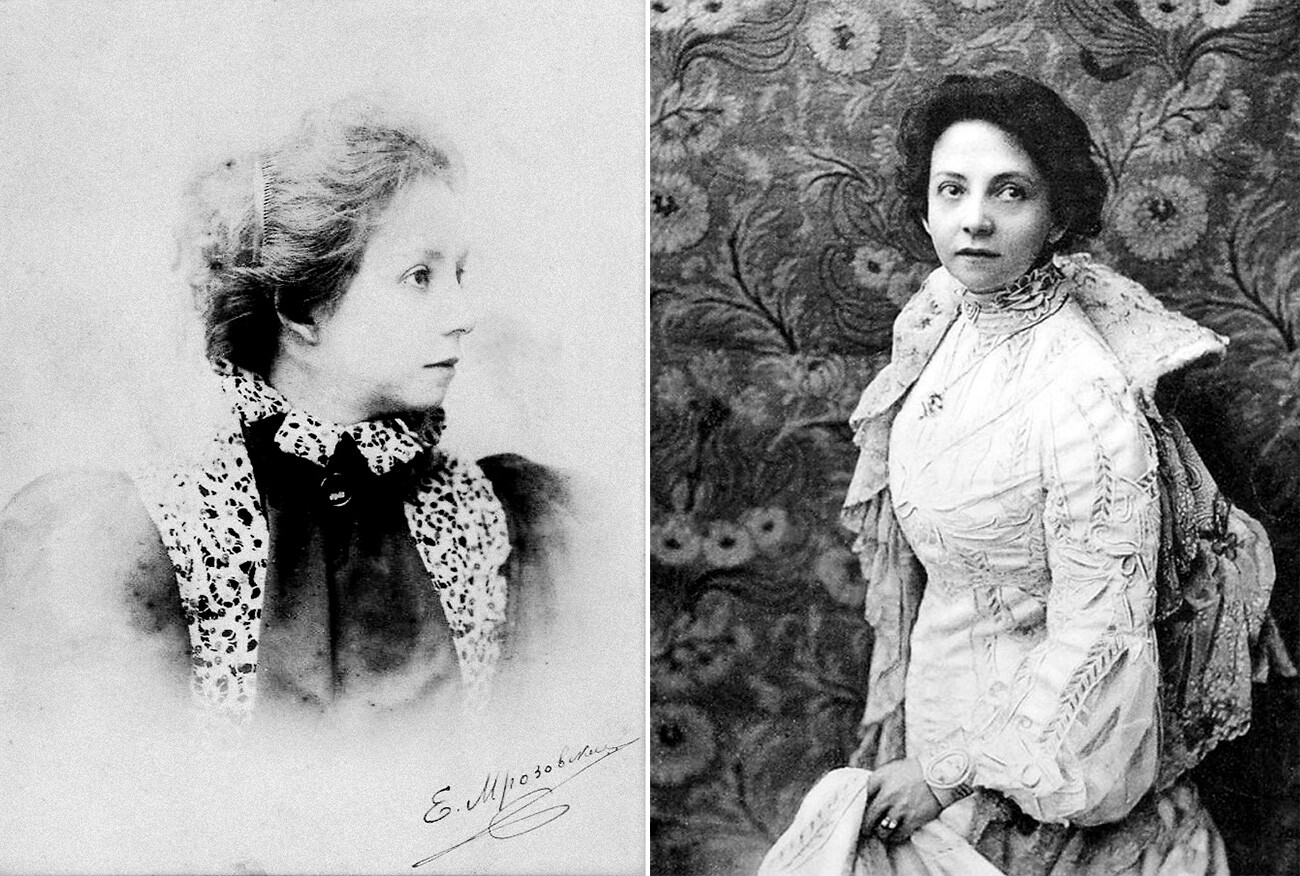 Actress Vera Komissarzhevskaya
Actress Vera Komissarzhevskaya
Mrozovskaya photographed directors as well – for example, the great Konstantin Stanislavski.
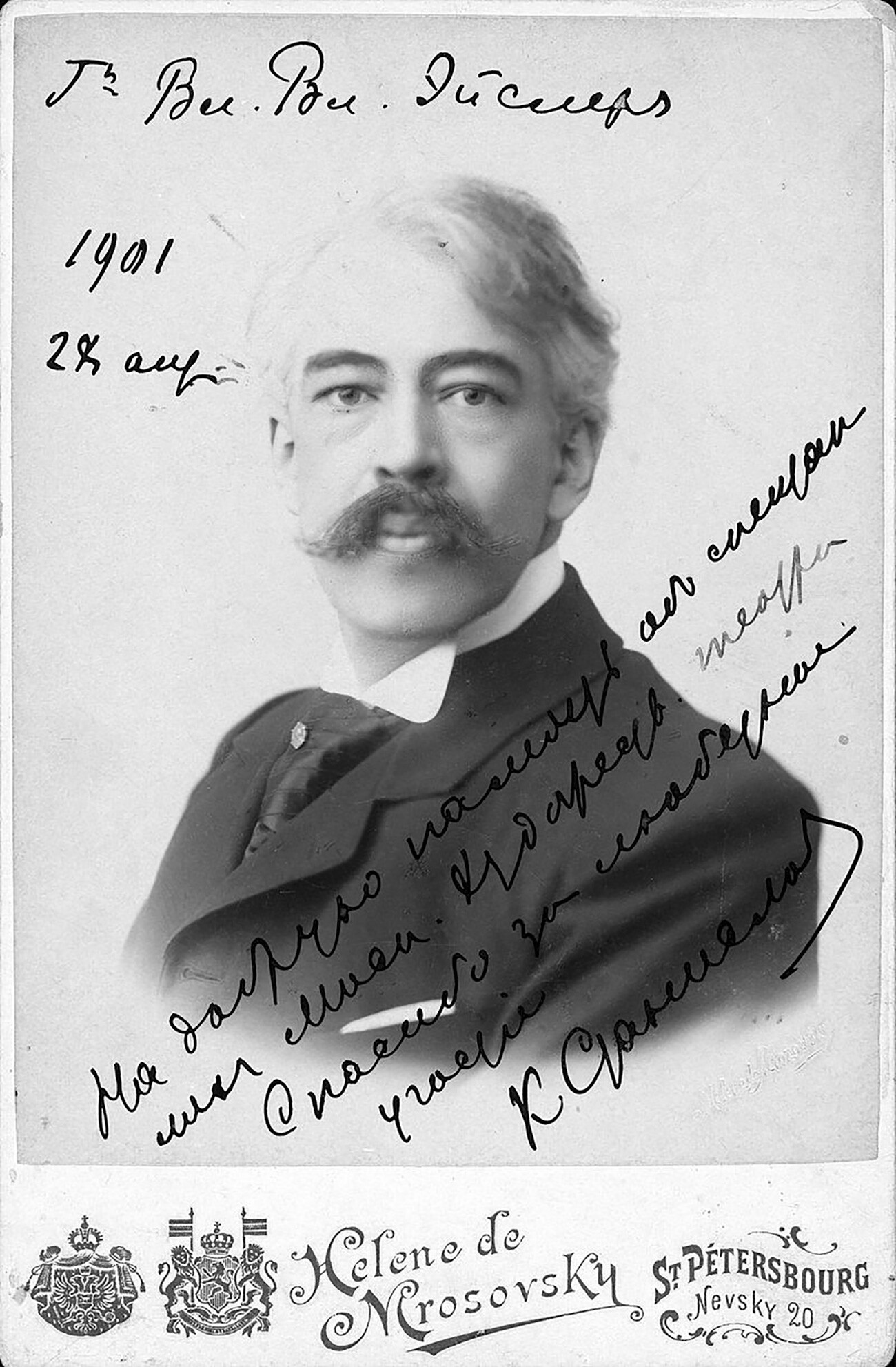 Theater director Konstantin Stanislavski
Theater director Konstantin Stanislavski
Chemist Dmitry Mendeleev was also caught in the lens of the female photographer.
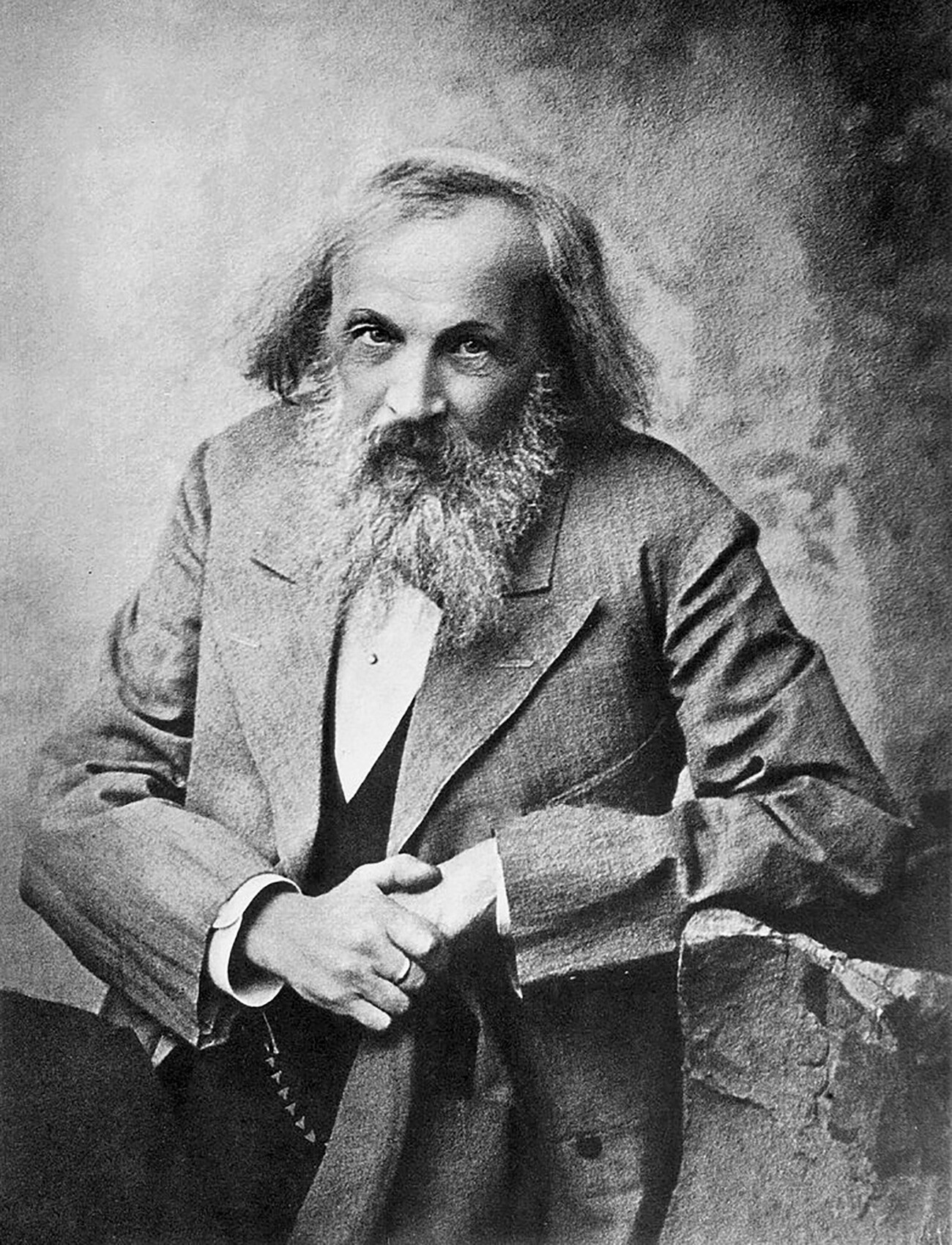 Chemist Dmitry Mendeleev
Chemist Dmitry Mendeleev
“…Mrozovskaya’s studio,
Where there’s nobility on ground glass
And Severyanin, as well.”
Avant-garde poet Igor Severyanin wrote about Mrozovskaya’s studio in his poetic novel ‘Leander’s Piano’, where he described a whole panorama of the cultural life of St. Petersburg.
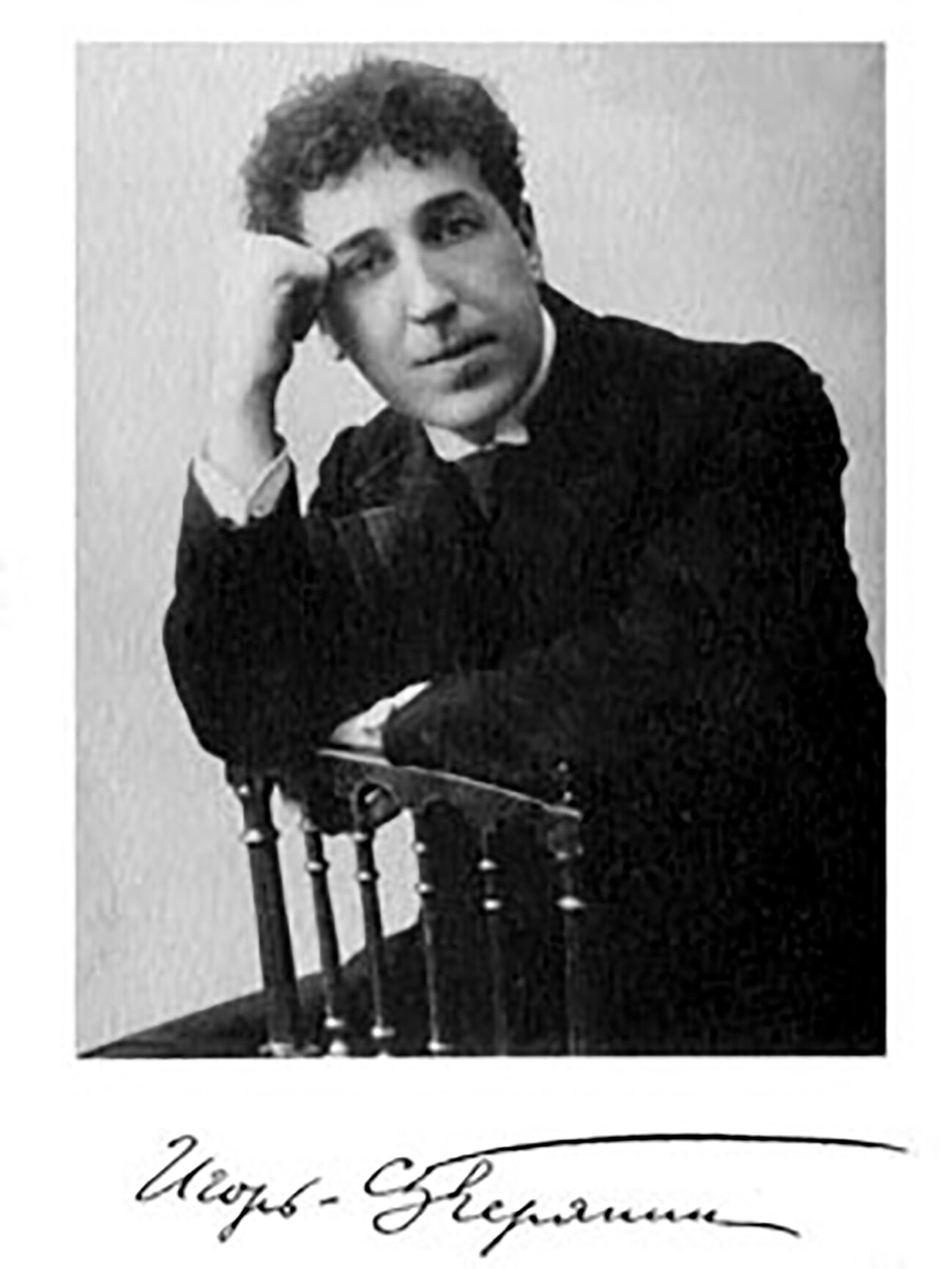 Poet Igor Severyanin
Poet Igor Severyanin
In 1896, Elena Mrozovskaya took a range of very early photos of the St. Petersburg Conservatory. She became the official photographer of not just the conservatory, but also of the Imperial Musical Society.
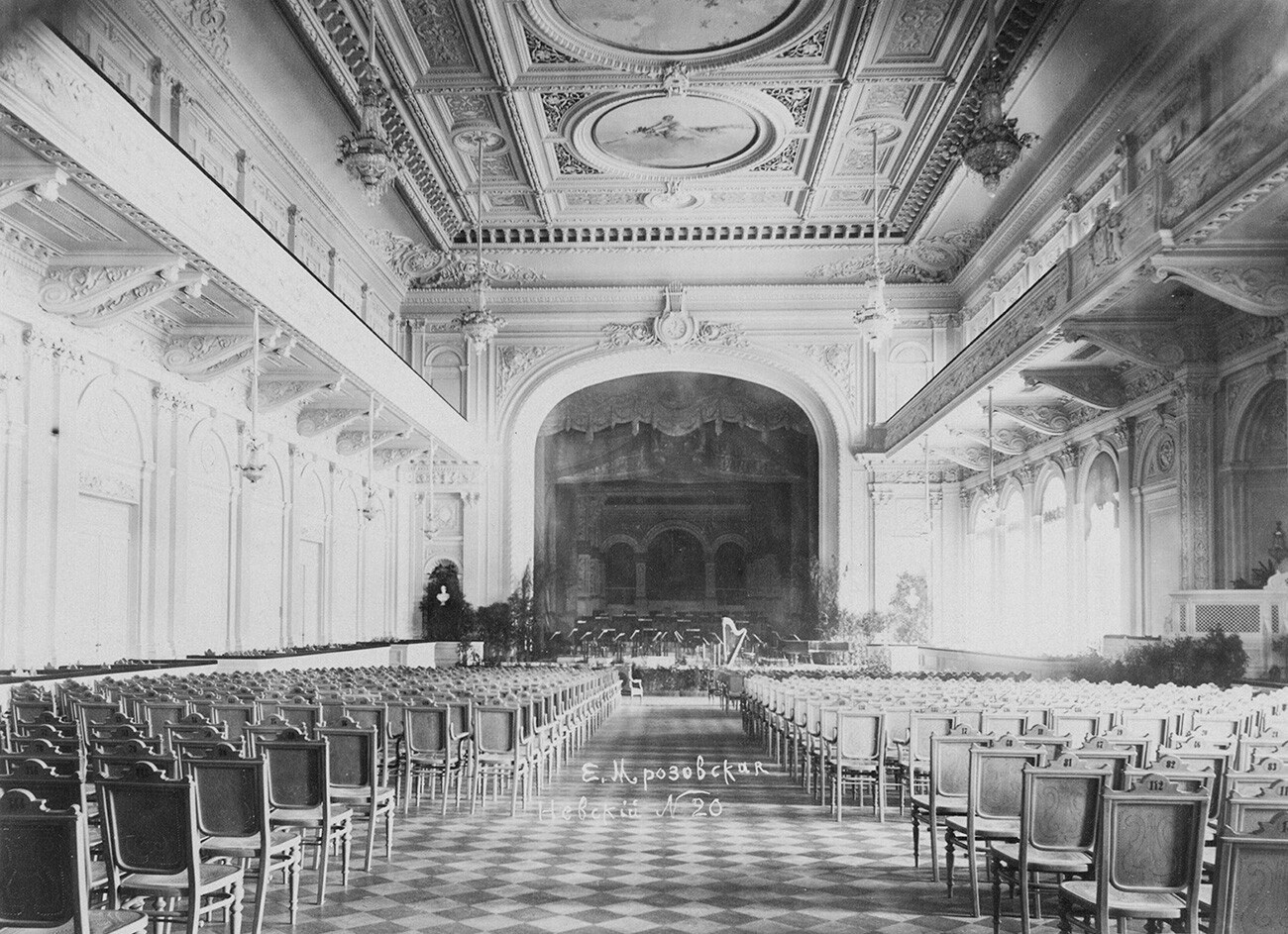 The big hall of the St. Petersburg Conservatory
The big hall of the St. Petersburg Conservatory
In 1903, Mrozovskaya earned the honor of being one of the photographers to attend the imperial costume ball in the Winter Palace. In particular, Grand Duke Konstantin Konstantinovich and Princess Olga Orlova were caught in her lens.
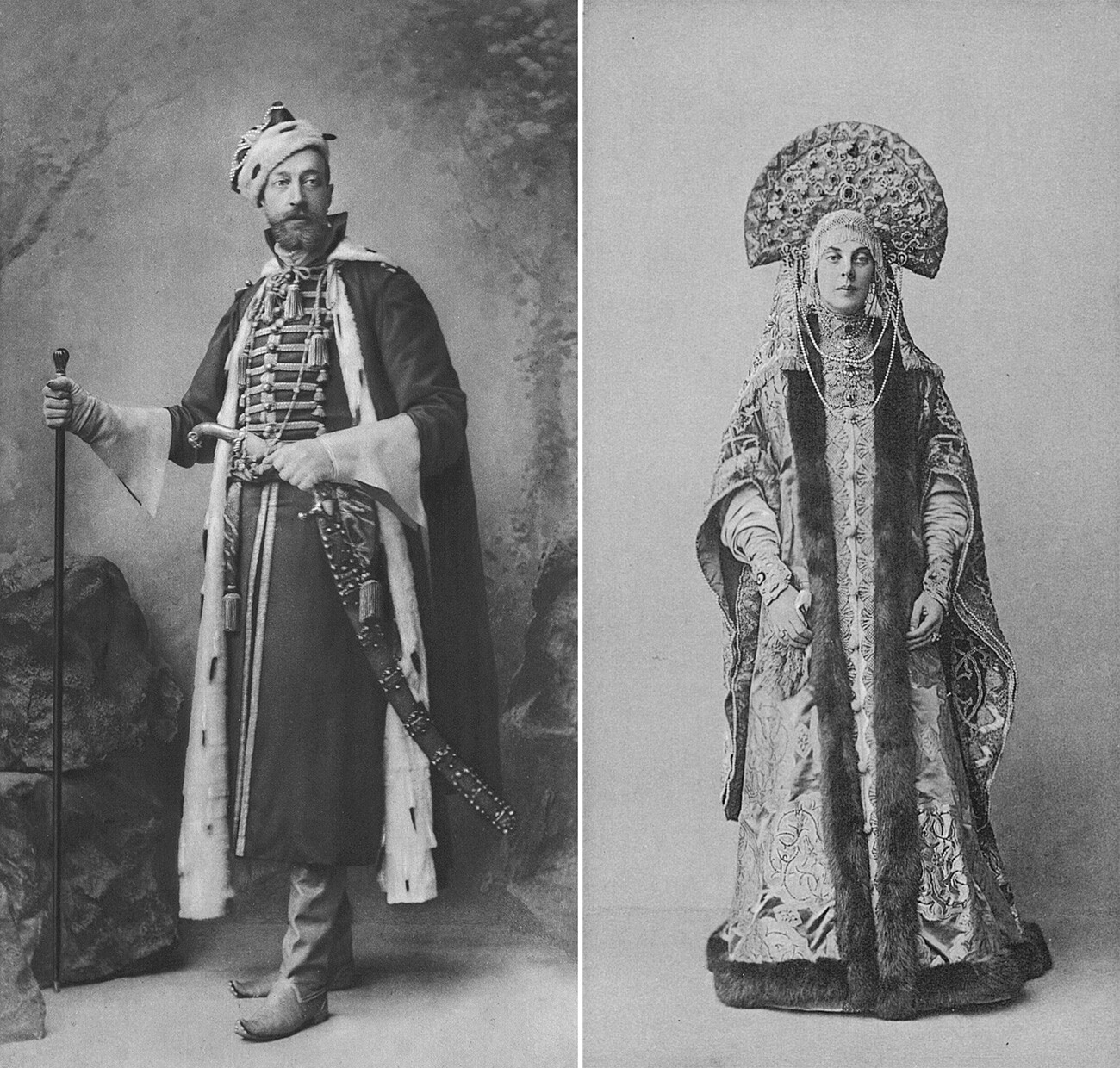 Grand Duke Konstantin Konstantinovich and Princess Olga Orlova
Grand Duke Konstantin Konstantinovich and Princess Olga Orlova
By the way, Mrozovskaya took pictures of Grand Duke Konstantin Konstantinovich separately, as well – with his family.
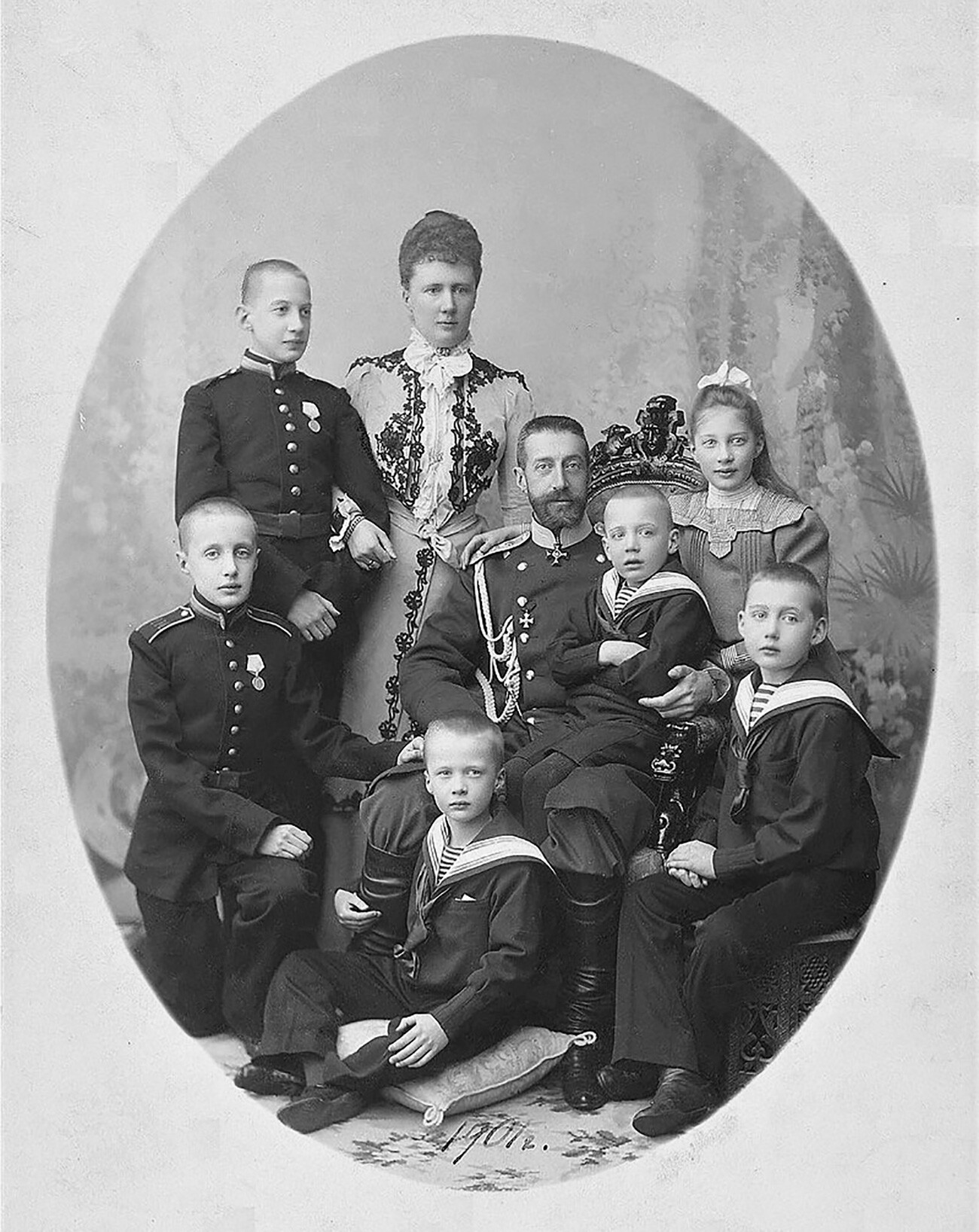 Grand Duke Konstantin Konstantinovich with family
Grand Duke Konstantin Konstantinovich with family
She had also taken his portrait, on which he left his autograph.
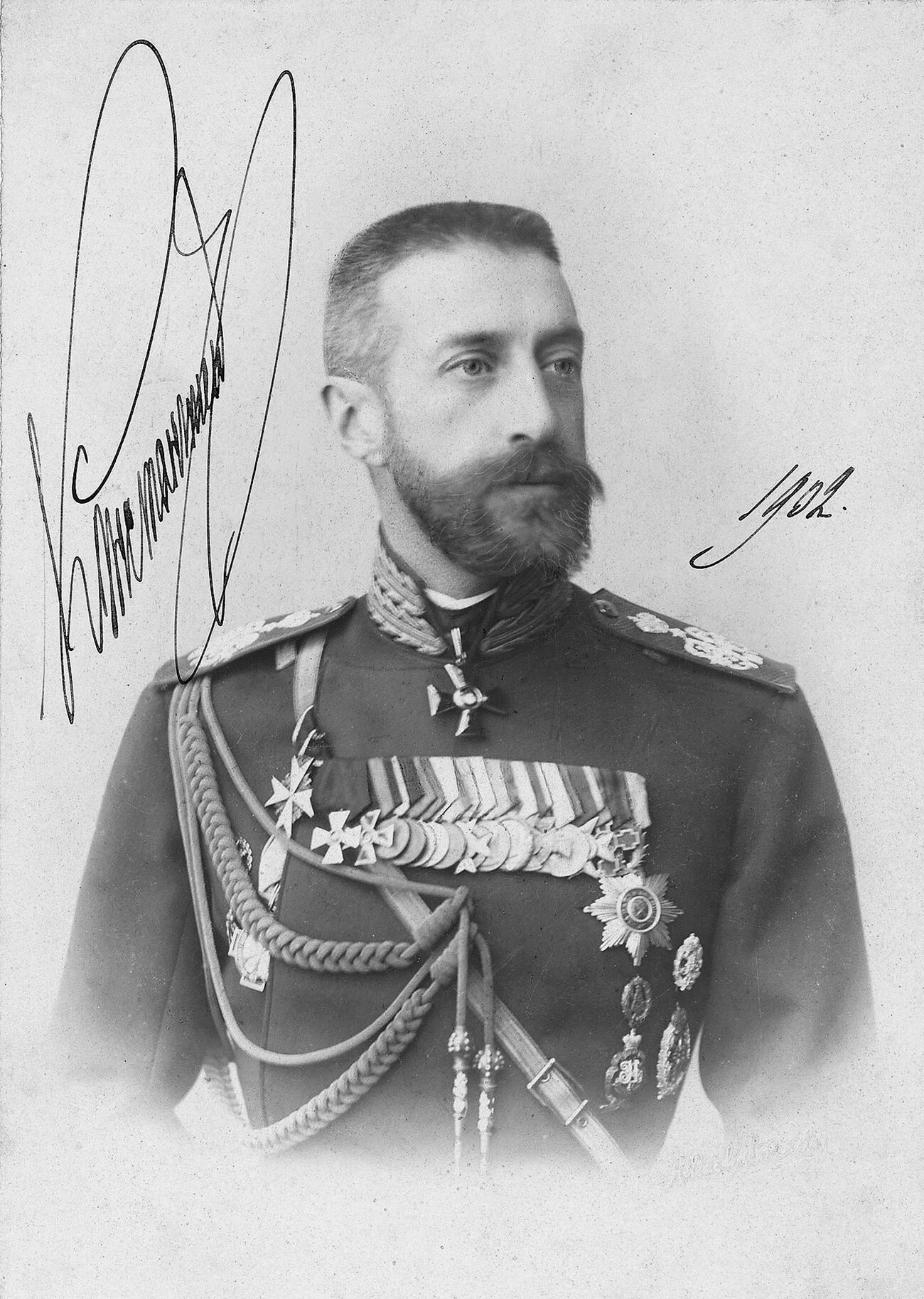 Grand Duke Konstantin Konstantinovich
Grand Duke Konstantin Konstantinovich
The portrait of Princess Olga Orlova with a kokoshnik became one of the most famous photos taken by Elena Mrozovskaya.
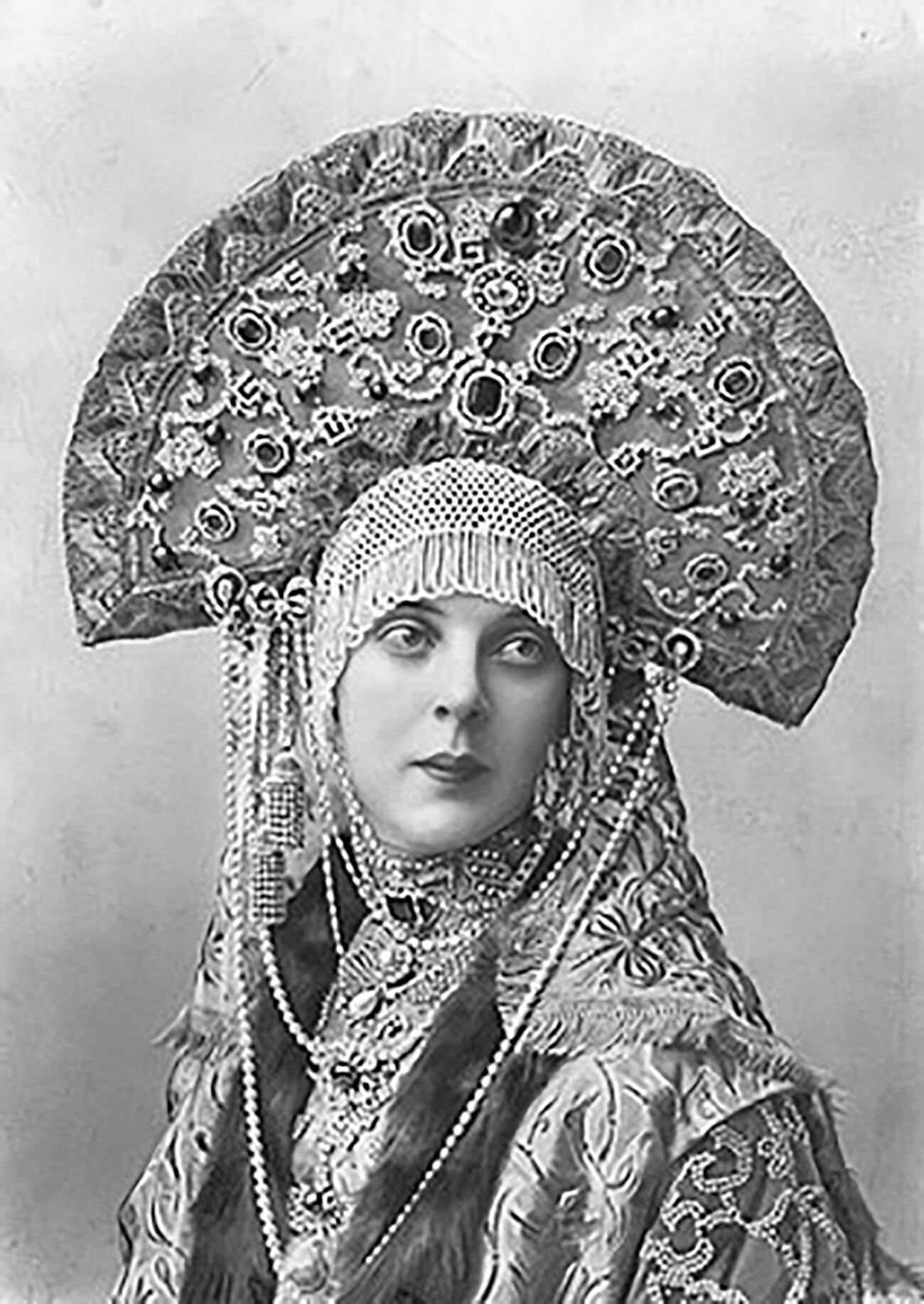 Princess Olga Orlova
Princess Olga Orlova
The colorized photo ‘Portrait of a girl in a Malorussian costume’ is also widely known.
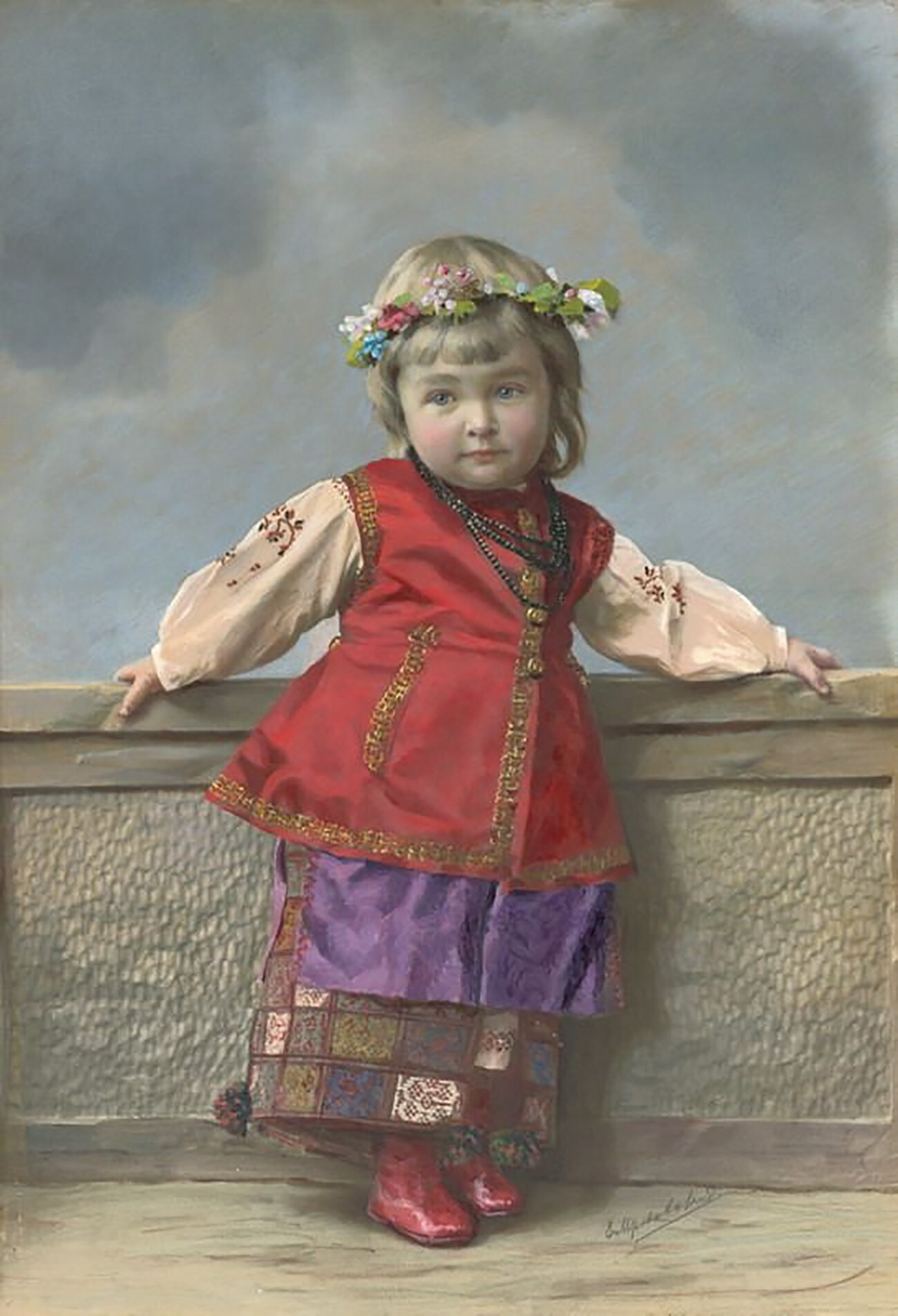 Portrait of a girl in a Malorussian costume
Portrait of a girl in a Malorussian costume
Mrozovskaya’s works participated in large international exhibitions; she received many awards and recognition. Her talent was in the high regard of her photographer colleagues, as well. For example, famous Sergey Prokudin-Gorsky, considered the pioneer of color photography, admired the fact that Mrozovskaya was constantly honing her skills, stepping beyond rules and canons and was always studying the human body and movement.
Having attended the 15th anniversary of Mrozovskaya’s studio, in 1909, he left a large review in the editor’s column of ‘Amateur Photographer’ magazine:
“When surveying Mrozovskaya’s works, which in abundance decorate her studio, your attention is involuntarily caught by the relentless strive to show the live movement of a human almost in every shot, which is achieved in some cases with great difficulty, at times sacrificing the technical side of the matter.”
After the revolution, Mrozovskaya’s studio was closed; she herself moved to her country dacha. Her further fate is covered in the fog of history; it’s only known that she died in the resort village of Kuokkala (modern Repino) near St. Petersburg in 1941.
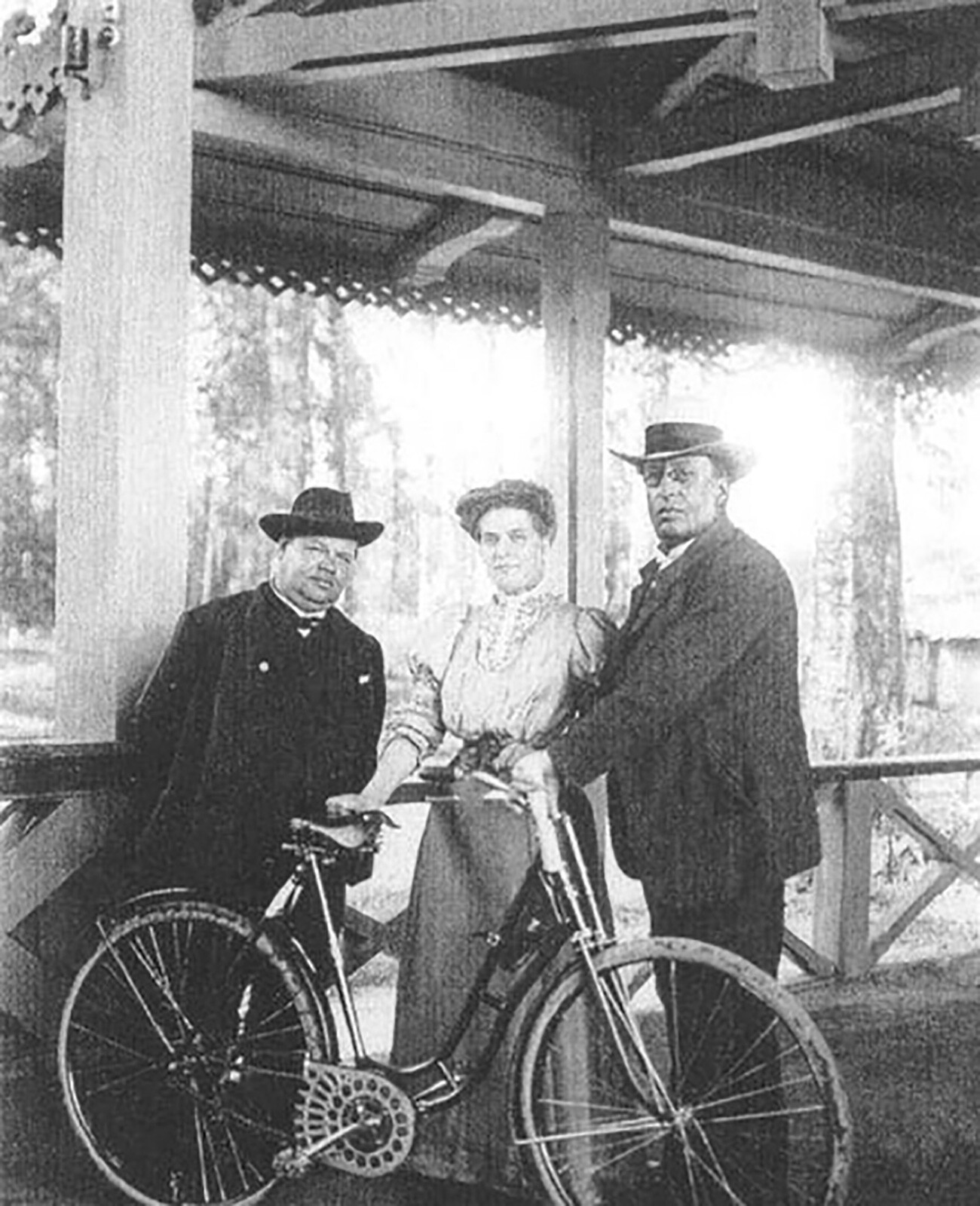 Elena Mrozovskaya (pictured in the center) outside St. Petersburg
Elena Mrozovskaya (pictured in the center) outside St. Petersburg
Today, Mrozovskaya’s works are kept at the Hermitage, at the St. Petersburg Conservatory and in other museums and state archives.


